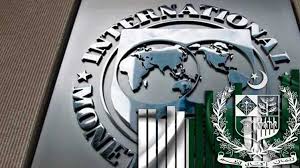ISLAMABAD – Mahir Binici, the IMF Resident Representative in Pakistan, has praised the country’s strong performance under the Pakistan IMF Agreement. He voiced confidence that Pakistan’s economic growth will gain momentum in 2025.
Binici was speaking during a detailed lecture at the Sustainable Development Policy Institute (SDPI). He discussed economic shifts across the MENA region and Pakistan. The IMF official also reiterated support for Pakistan’s economic and climate-related reforms.
Addressing an audience of economists, researchers, and policy experts, he explained that growth in the Middle East, North Africa, and Pakistan is expected to strengthen further in the coming year and beyond. But he also warned of global risks. Rising trade tensions, regional conflicts, and weak international cooperation continue to create major uncertainty in global markets. These issues, he said, demand careful and forward-looking policies.
Speaking about the Pakistan IMF Agreement, Binici said the country’s performance so far under the Extended Fund Facility (EFF) has been strong. He highlighted the successful IMF Executive Board review in May 2025 as a major achievement.
According to Binici, Pakistan’s early policy steps helped stabilize the economy. They also played a vital role in rebuilding investor trust, despite facing tough external challenges. He stressed the need for ongoing structural reforms. These should aim to make the tax system more just, improve the investment environment, and promote private-sector-led growth.
The IMF official also focused on climate reforms under the Resilience and Sustainability Facility (RSF). This facility is a key part of the IMF-backed plan to help Pakistan tackle climate-related risks and meet international climate goals.
Binici explained the RSF’s reform areas. These include better public investment planning, improved water resource use, disaster financing, and more transparent climate data. He noted that these steps would not only improve Pakistan’s climate strength but also attract green investments and help shift the country toward a climate-aware economy.
Dr. Abid Qaiyum Suleri, SDPI’s Executive Director, welcomed the IMF’s outreach. He highlighted the value of open economic discussions and global cooperation for Pakistan’s sustainable development.
The session ended with a lively question-and-answer segment. The discussion covered Pakistan’s monetary and fiscal policies, foreign exchange reserves, and the role of institutions like the IMF in building inclusive economic growth.
In March, Pakistan and the IMF reached a staff-level deal under the $7 billion EFF. The IMF deal aims to bring financial stability and drive much-needed structural changes in the country.


